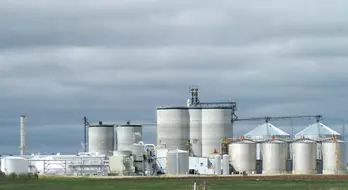The Government Has Cut GST On Alcohol From 18 Percent To 5 Percent Under The Ethanol-Blended Petrol Program
.webp)
Prosecution Limit Increased by The GST Council, Raises Tax on SUVs
On Saturday, the 48th GST Council discussed eight out of the fifteen agenda items and lowered GST on a few of the items, helping farmers as well as petroleum refiners. In addition, they provided clarifications related to rates on many items like fryums, rab (a semi-solid form of jaggery), and sports utility vehicles (SUVs) in order to ensure national uniformity.
On Saturday, the Goods and Services Tax (GST) Council decided to slash the GST on some animal feed types, reduce the duty on ethanol that is supplied to refineries for petrol blending, and impose a 22 percent excise on certain SUVs with specific features. Furthermore, they decided to maintain a no-claim bonus on outside the tax ambit insurance products, as well as legalised several violations barring offences for forging invoices
Request Access For Regular Price Update of Ethanol
There was no increase in tax on any item in the following council meeting. As per Nirmala Sitharaman, the Union finance minister, all things are being carried out to give clarifications where the ambiguity of interpretations prevailed. Chairperson Sitharaman of the council, which represents states through their own finance ministers respectively, is the apex decision-making body concerning matters related to GST.
During the meeting held on Saturday, the council chose to spare husk of pulses, counting chilka and consolidates like churi, chuni, and khanda from GST. Before, these fodder materials drew a 5 percent tax albeit used as an ingredient in cattle feed.
GST on Ethanol Lowered
It also lowered the GST for ethyl alcohol (ethanol) which is delivered to refineries for petrol blending, from 18 percent to 5 percent. Sanjay Malhotra, the revenue secretary, explained the decisions by the 48th GST Council, stating that the move was made to bring the refineries and oil marketing companies on par since the oil marketing companies had previously relished on a 5 percent tax on ethyl alcohol. The move will boost ethanol blending and lower the nation's reliance on imported fuel, thus resulting in savings of precious foreign exchange.
It can be recalled that the target of 20 percent ethanol blending in petrol was pushed back by the government from 2025 to 2030. The sharp GST cut coincides with the government's jab laying on ethanol blending.
For the Ethanol Blending program, the target set by the government is blending 5 percent bio-diesel with diesel and 20 percent ethanol with petrol. When ethanol is combined with petrol, its calorific value lowers, but it also significantly decreases fossil fuel usage, making ethanol-blended petrol more environmentally friendly.
Ethanol blending in India is of macro relevance since the nation presently depends on imports to meet 85 percent of daily crude oil requirements. This reliance can be reduced by moving to 20 percent ethanol blending. That will likely have an advantageous effect on the trade deficit and also lower the stress on the Indian rupee vis-à-vis the dollar.
The council also corrected the ambivalences in relation to the applicability of GST rates along with a tax on several items, including rab, SUVs, and fryums. It was made clear that rab baits an 18 percent GST rate, whereas fryums made using the extrusion process has 18 percent GST.
The council concluded that a motor vehicle would have a higher cess compensation rate of 22 percent in case they qualify for all four conditions, i.e., it must be widely known as an SUV, have an engine capacity of more than 1,500cc, length surpassing 4,000mm, and a 170mm or above ground clearance.
Read More About Ethanol Production Cost Reports - REQUEST FREE SAMPLE COPY IN PDF
According to Procurement Resource, the article concludes that the GST council of India, which is the apex decision-making body concerning matters related to GST, has decided to lower the tax on ethanol from 18 percent to 5 percent. Ethanol is used in blending with petrol which lowers its calorific value and also significantly decreases fossil fuel usage, making ethanol-blended petrol more environmentally friendly. Also, a more sensible duty structure would help the government policy to encourage ethanol blending reducing the reliance on foreign imports.



